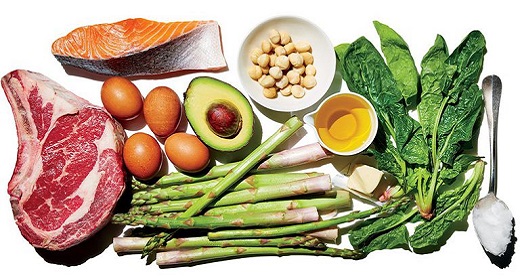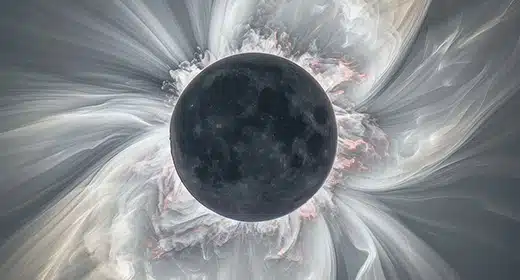by Seth J. Gillihan: Most of the unpleasantness we experience comes from struggling against reality…
In contrast, embracing all of life as it unfolds—what’s often called “mindfulness”—is one of the surest ways to live well.
It makes sense that living mindlessly is unfulfilling; it’s hard to find peace or joy when we’re constantly treating reality as the enemy, whether by putting our attention elsewhere or by rejecting things as they are. Paradoxically we can find rest only when we stop trying to make things go our way and embrace life on its terms.
Countless books have been written about the practice of mindfulness (including A Mindful Year, which I recently co-authored with my fellow Psychology Today blogger Dr. Aria Campbell-Danesh). Here are five of my favorites. They’re all very different, which speaks to the richness of the principles of mindfulness and their applications.
1. Shambhala: The Sacred Path of the Warrior (Chögyam Trungpa)
It’s hard not to love this book when it seemed to show up in my life by magic. I had just been introduced to the concept of mindfulness and then happened to notice this book on our bookshelf. It had probably been there for eight years or so, and I’d never taken note of it. The title grabbed me immediately—what is the warrior’s “sacred path”?
As soon as I open Shambhala, I was sucked right in. I can still recall sitting on the train reading this book on my way to work, and feeling like I was seeing clearly for the first time. At the same time, Trungpa’s words captured things I had felt strongly yet never expressed. I couldn’t put it down. I don’t think any book has ever affected me so profoundly.
The Shambhala approach is radically different from what we typically think of when we hear the word “warrior.” According to Trungpa, the work of the warrior emphasizes gentleness and openness. The hardest work we can do is to love with our whole hearts; it requires mastering ourselves, which is no easy thing.
Trungpa also writes about allowing our defensive armor to fall away, and opening to the genuine sadness of our hearts. It’s easy to run when we start to feel the sadness that comes with being truly open to all of life, whether we run to alcohol, smoking, entertainment, intellectualism, or anything else. Trungpa suggests we invoke the fierceness of a warrior in our willingness to face life just as it is.
2. The Wisdom of No Escape and the Path of Loving-Kindness (Pema Chödrön)
I was drawn to the work of Pema Chödrön (a student of Trungpa’s) for a long time, but hesitated to read her books because, to be honest, I was a little afraid of her—afraid she was going to be like my own internal voice: strict, harsh, judgmental.
Instead, what I found throughout her writings is a lovely blend of strong encouragement to be responsible for ourselves with an utter acceptance of who we are, with all our human frailties. That strong compassion is compelling. She’s also utterly relatable, and speaks as a fellow traveler on this journey.
Each time I return to this book, I’m struck by the opening passage: Chödrön invites us to step out of our habitual pattern of just trying to get comfortable, and instead pursue a life of greater openness to adventure and all that life is. I love that.
This book is filled with invaluable wisdom and insights. The title itself is a revelation—that we can’t escape from the difficulties that come with being alive, and can actually embrace the unavoidable ups and downs of life. There’s freedom in that recognition—the same freedom I find in the writings of the Stoics (see this earlier post: What Really Determines Your Peace of Mind), and the adaptation of Stoic principles in cognitive behavioral therapy.
By stepping out of the pointless struggle against life’s difficulties, we can focus our attention where it actually makes a difference—like bringing the full force of our presence to our relationships and to service.
If you’ve never read Chödrön’s work, consider starting here.
3. The Power of Now: A Guide to Spiritual Enlightenment (Eckhart Tolle)
Eckhard Tolle offers a crystal clear description of why true living is always found in the present. We spend most of our time focused on the past and the future, but it doesn’t feel like real life (because it’s not). When we come into the immediate present, we discover that things in that moment are okay just as they are.
Someone I know once described the centered presence he felt while riding an ocean wave for about six seconds; he said it felt like more living than days of doing things in his typical mode of anxious distraction.
There’s something about coming right into the present that so often is calming. Even if we’re in a difficult place, just being in that place causes less suffering than struggling against it and wishing we were elsewhere.
I once applied Tolle’s principles when I was feeling anxious and stressed out about the amount of work I had to do. In the midst of trying to figure out where to get started, I decided to peel and eat a clementine—to really experience it. I felt the peel in my hands, smelled the oils as I peeled it, heard the sound of the sections as I separated them, tasted its sweetness. Immediately I felt centered and could let go of the stories I was telling myself about how I couldn’t possibly get everything done.
4. The Mastery of Love: A Practical Guide to the Art of Relationship (don Miguel Ruiz)
Don Miguel Ruiz writes masterfully, with an unapologetically magical quality. (A bit similar to Eckhart Tolle’s in that way.) Ruiz captures and conveys crucial insights about how our relationship with ourselves affects our relationships with others, and how to go about healing our relationship with ourselves.
It’s amazing how long we can live without discovering what it means to really be loved. Ruiz describes clearly and directly why the awareness that we’re loved has to come from within, though others can certainly be instrumental in helping to open our eyes and our hearts.
It’s important to note that it often takes a lot of practice to develop good relationship skills, and “mastery” of love doesn’t mean our relationships will be free from conflict and struggles. On the contrary, there can be a lot of conflict in a healthy relationship. But we can have strong, enduring relationships in which we share love and connection, and embrace the other person just as they are.
5. The Golden Sequence: A Manual for Reclaiming our Humanity (Jonni Pollard)
The world can be a pretty bewildering place. We’re promised that happiness and contentment lie precisely where we’re not going to find them—in pleasure, possessions, status, domination. So it can be so confusing to find that the more we pursue these things, the less content we feel, even when we seem to be “succeeding.”
The crush of technology has accelerated this disconnect, as we pursue Likes and Follows with an addict’s zeal, while our real-life connections wither. But we’re conditioned to seek more of exactly what’s leading to our discontent, doubling down on our screen time rather than rediscovering connection to the three-dimensional world.
The only way to conquer this anxiety and alienation, as Jonni Pollard describes, is to rediscover your authentic human nature. There’s a truth about you at the level of your spirit—the “you-iest” part of you. We often cover it over with layers and layers, exactly as Chögyam Trungpa and Pema Chödrön describe, to protect ourselves. And in the process of building protective walls, we separate ourselves from others and even from knowing who we are.
There’s nothing more exciting than starting to look behind those layers. Even the awareness that we’re more than we realize can be exhilarating—deep down, I suspect we know it already. We know we’re more than these physical bodies and these anxious, judging minds. There’s a deep truth about ourselves that wants to be known.
So by starting to discover the truth about who we are, we can start to live that truth. We can discover, as Pollard so beautifully describes, that life is sacred and love is our nature. And the actions that follow from the truth of who we are will bring fulfillment in a way that the endless pursuit of our false selves never can.
Ready to improve your life? Find ways to be in it, fully and wholeheartedly. I’ll see you there.














































